You are here :
Home Green Skill Development Programme (GSDP)
|
Last Updated:: 17/05/2018
Green Skill Development Programme (GSDP)

Importance of Skilling India's Youth
|
India's youthful manpower, a result of the demographic dividend, need to be provided with skills and ability to tackle global challenges. The more we give importance to skill development the more competent youth will be. It is important to predict the possibilities of the future, and prepare for them today itself. We have to make India the skill capital of the world.
- Shri Narendra Modi,
Prime Minister of India
|
To protect the environmental right of our future generations, all of us have a green social responsibility. The fast evolving and emerging technologies in dynamic world to combat the menace of environmental degradation need to be complemented by specially trained and skilled manpower in various field at all levels. Imparting skill sets for greener transformation will generate employment opportunities and strengthen our resolve to conserve and preserve the priceless environment.
- Dr. Harsh Vardhan,
Minister, Environment, Forest and Climate Change
|
India’s youth needed to be empowered with skill development with focussed training in their areas of interest. For instance, there is need for skill development at the grassroots to meet the challenges of hospitality and tourism industry in order to better harness India’s tourism potential.
- Dr Mahesh Sharma,
Minister of State, Environment, Forest and Climate Change
|
About GSDP
Most vocational training programmes focus on mechanical/technical skills rather than ‘soft’ or ‘green’ skills. Green skills contribute to preserving or restoring environmental quality for sustainable future and include jobs that protect ecosystems and biodiversity, reduce energy and minimize waste and pollution. In line with the Skill India Mission of Hon’ble Prime Minister, Ministry of Environment, Forest & Climate Change (MoEF&CC) utilising the vast network and expertise of ENVIS Hubs/RPs, has taken up an initiative for skill development in the environment and forest sector to enable India's youth to get gainful employment and/or self-employment, called the Green Skill Development Programme (GSDP). The programme endeavours to develop green skilled workers having technical knowledge and commitment to sustainable development, which will help in the attainment of the Nationally Determined Contributions (NDCs), Sustainable Development Goals (SDGs), National Biodiversity Targets (NBTs), as well as Waste Management Rules (2016).
The first GSDP course was formulated for skilling Biodiversity Conservationists (Basic Course) and Para-taxonomists (Advance Course) of 3 months duration each, on a pilot basis in ten select districts of the country (covering nine bio-geographic regions). 94 Trainees successfully completed the basic course qualifying as skilled Biodiversity Conservationists and 152 Trainees completed the Advanced Course qualifying as skilled Para-taxonomists. BSI and ZSI were the nodal Centres for the pilot programme.
Background
India being the second most populous country in the world is bestowed with a large working population. India has advantage of reaping this demographic dividend. However, high drop-out rates from school coupled with poor vocational skills may hinder in reaping this dividend. There exists a demand supply gap of skill sets, both cognitive and practical, at various levels in the Environment/ Forest fields in India
Opportunities
The candidates completing the Course(s) may be employed gainfully in the zoos/wildlife sanctuaries/national parks/ biosphere reserves/ Botanical Gardens/Nurseries/wetland sites/ State Biodiversity Boards/Biodiversity Management Committees/Wildlife Crime Control Bureau; industries (involved in production/ manufacturing of green products, as ETP operator); tourism (as Nature/Eco-tourist Guides), agriculture (as organic farmers/ green practitioners), education & research sectors as well as engage in waste management (in Municipal Corporations/ Councils/Urban Local bodies to advise on how to improve sewage, sanitation, land use services/ tackle pollution), water management, construction related areas, etc. Some of the courses enable the candidates to become self-employed.
The first GSDP course was formulated for skilling Biodiversity Conservationists (Basic Course) and Para-taxonomists (Advance Course) of 3 months duration each, on a pilot basis in ten select districts of the country (covering nine bio-geographic regions). 94 Trainees successfully completed the basic course qualifying as skilled Biodiversity Conservationists and 152 Trainees completed the Advanced Course qualifying as skilled Para-taxonomists. BSI and ZSI were the nodal Centres for the pilot programme.
Course Offered
The complete list of course offered under GSDP programme conducted by different ENVIS Centre's in country can be downloaded Here
ENVIS Centre on "Environmental Problems of Mining", Indian Institute of Technology(Indian School of Mines), Dhanbad is conducting courses on:
Pollution Monitors : Air and Water Pollution
Online Application form for GSDP Course 
Download GSDP-ENVIS Andorid application

---------------------------------------------------------------------------------------------------------------------------------------------------------
GSDP-ENVIS Website

---------------------------------------------------------------------------------------------------------------------------------------------------------
E-Brochure of GSDP-ENVIS Course
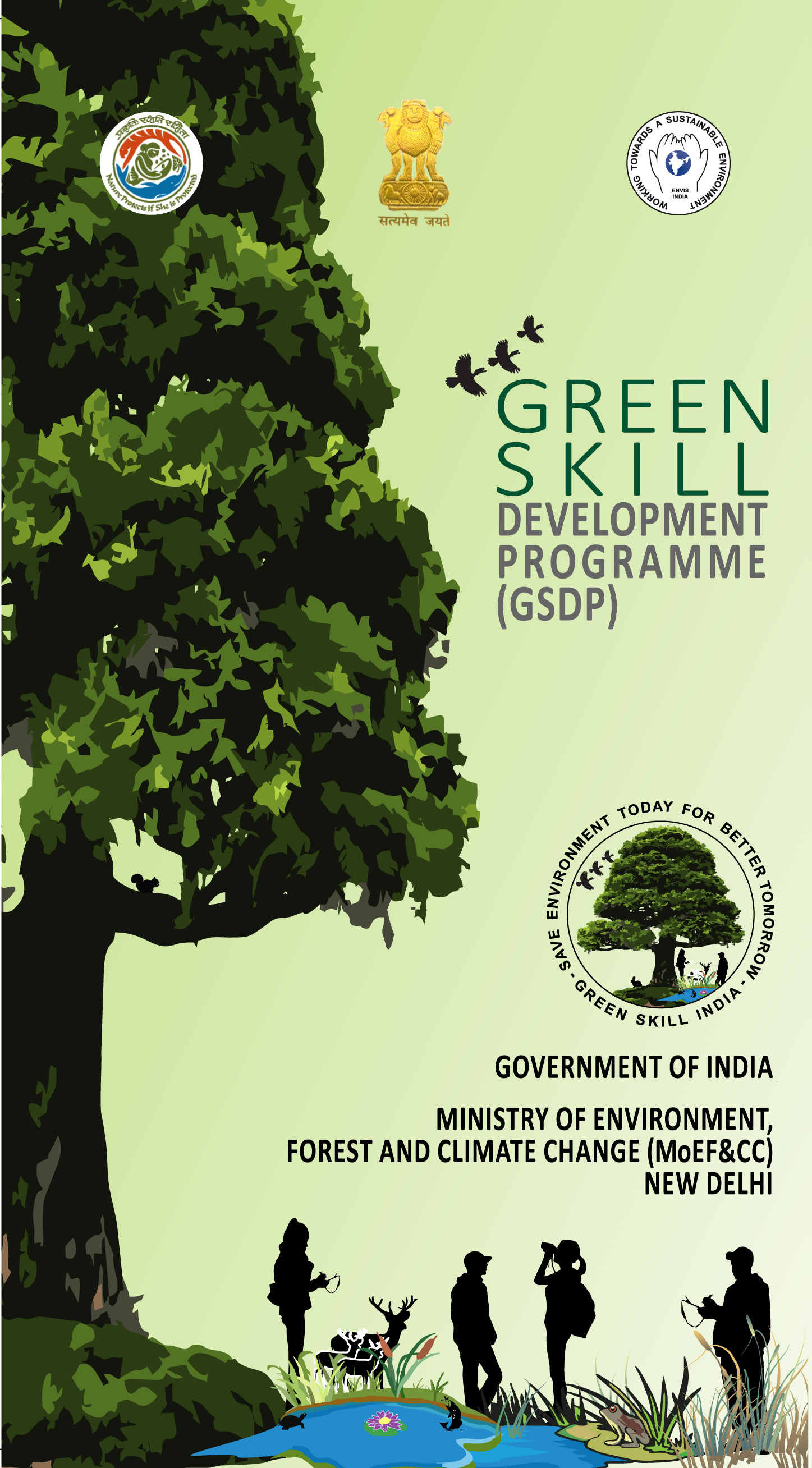
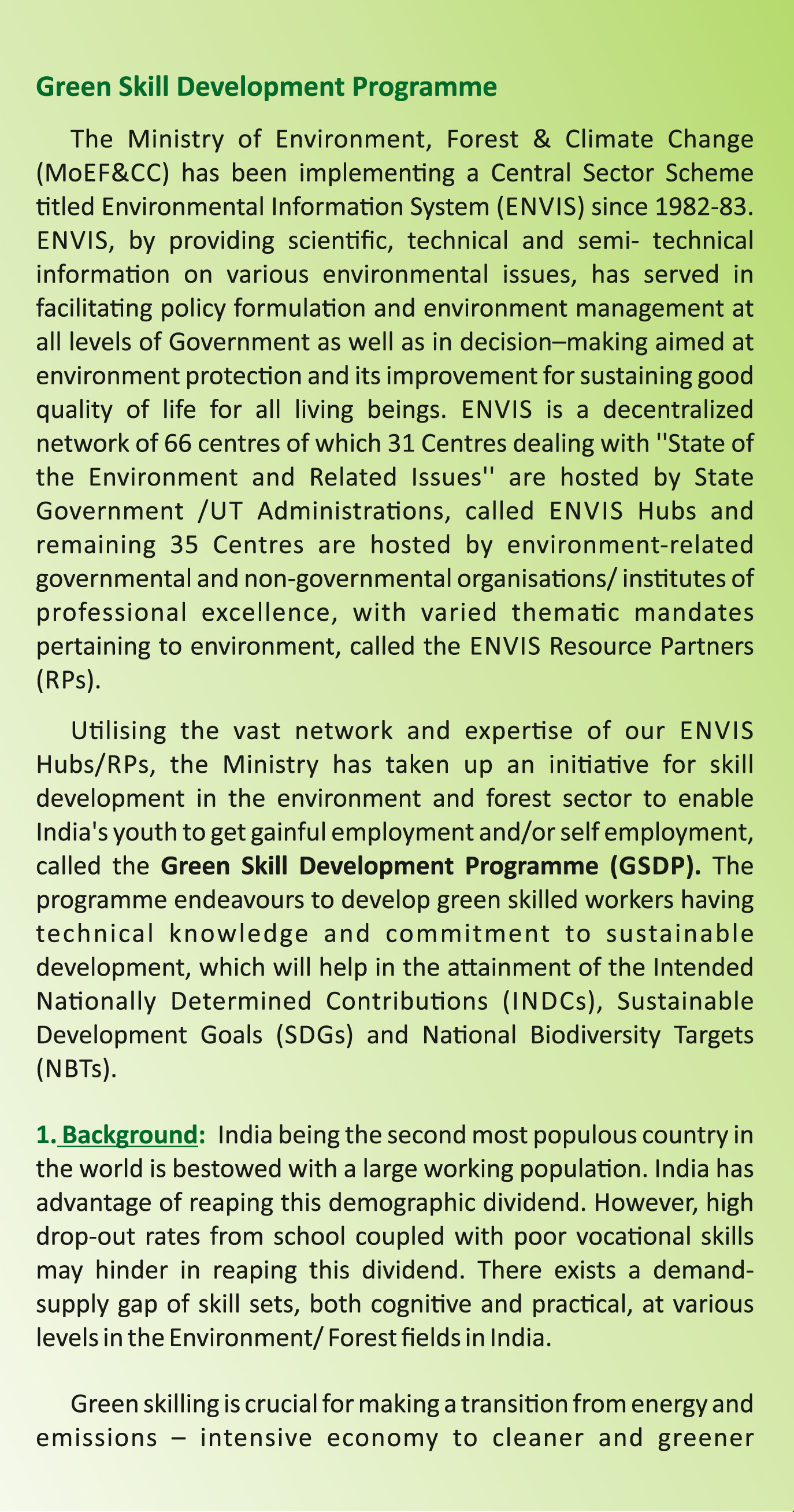
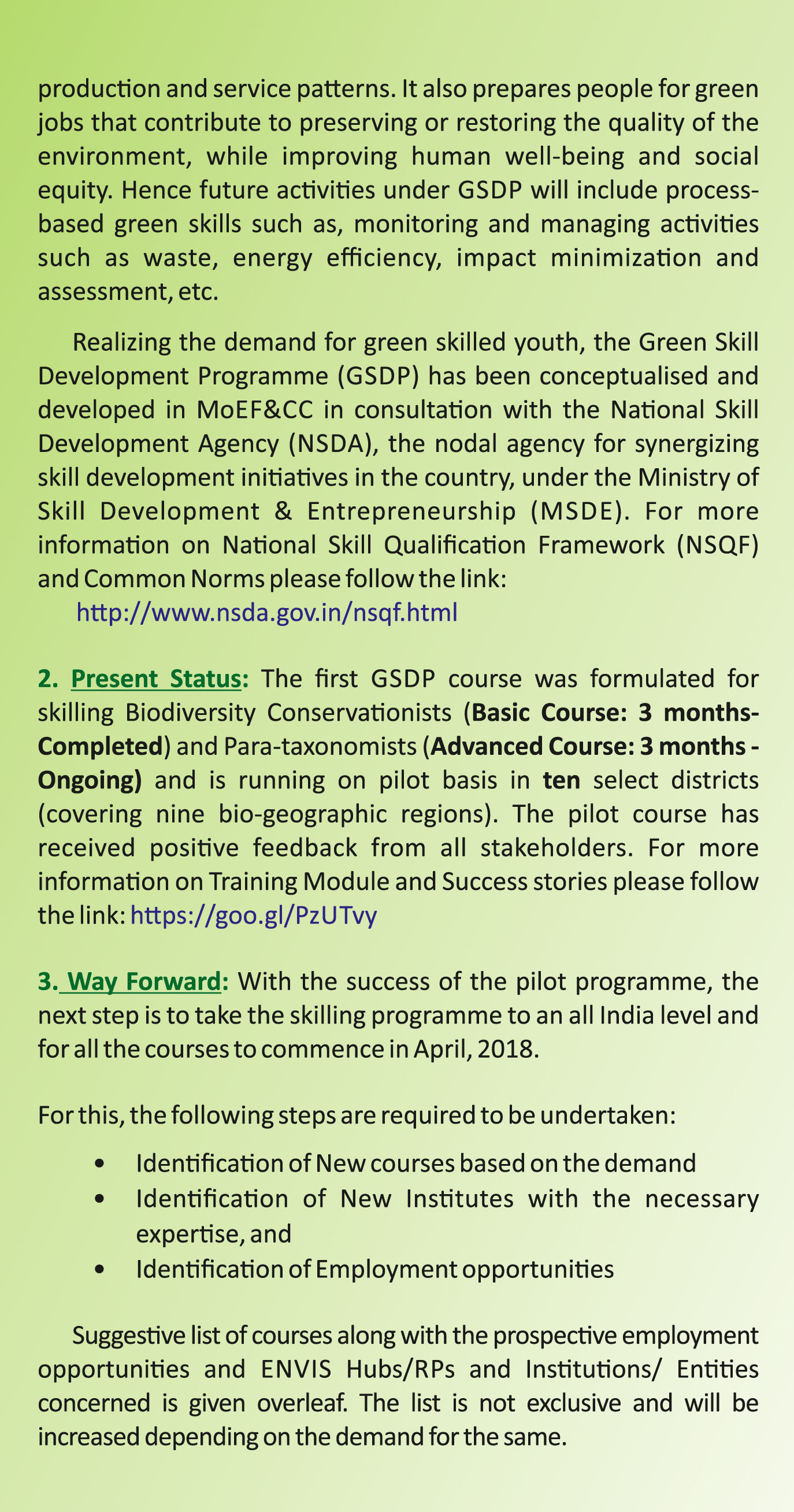
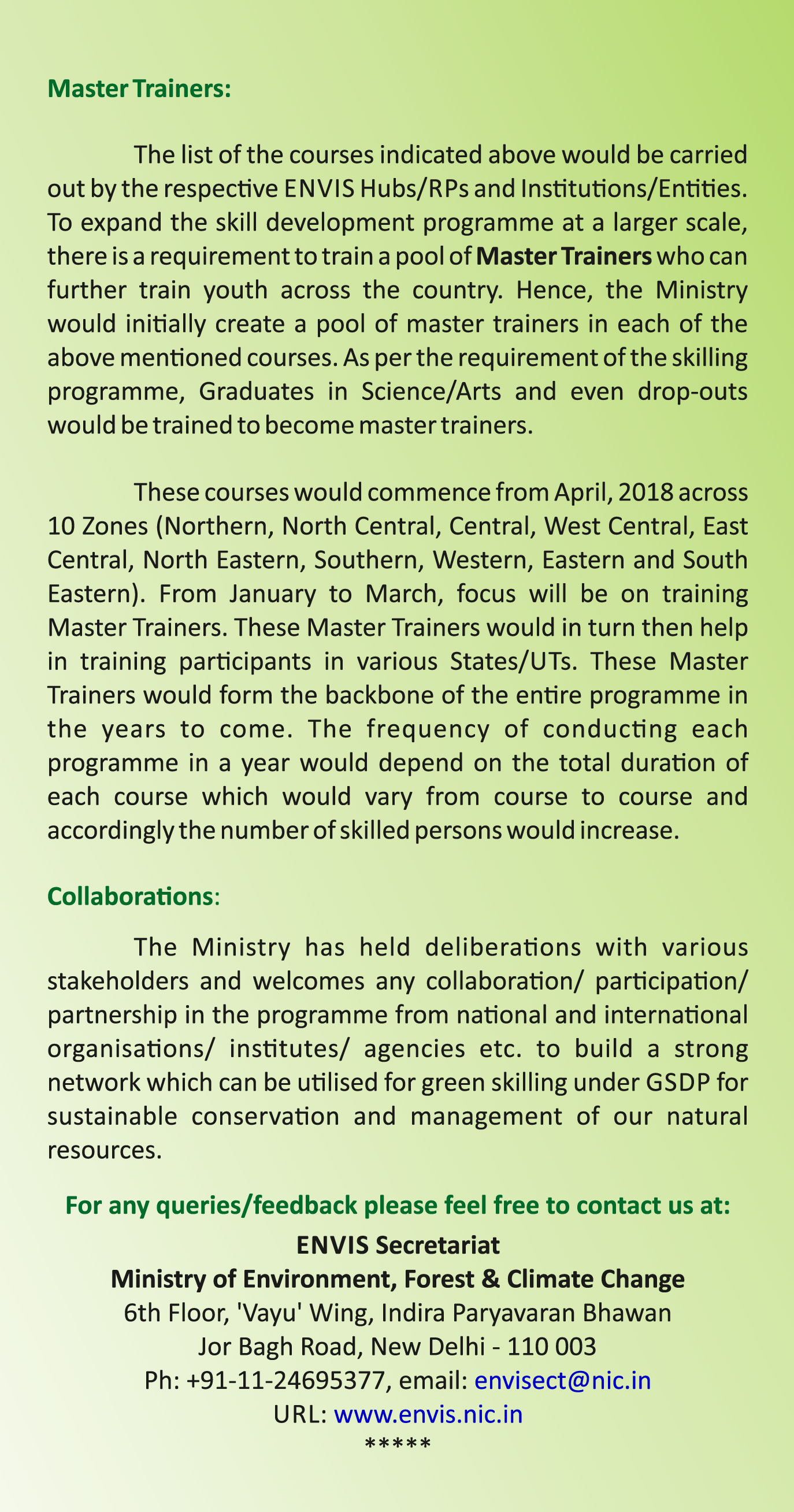
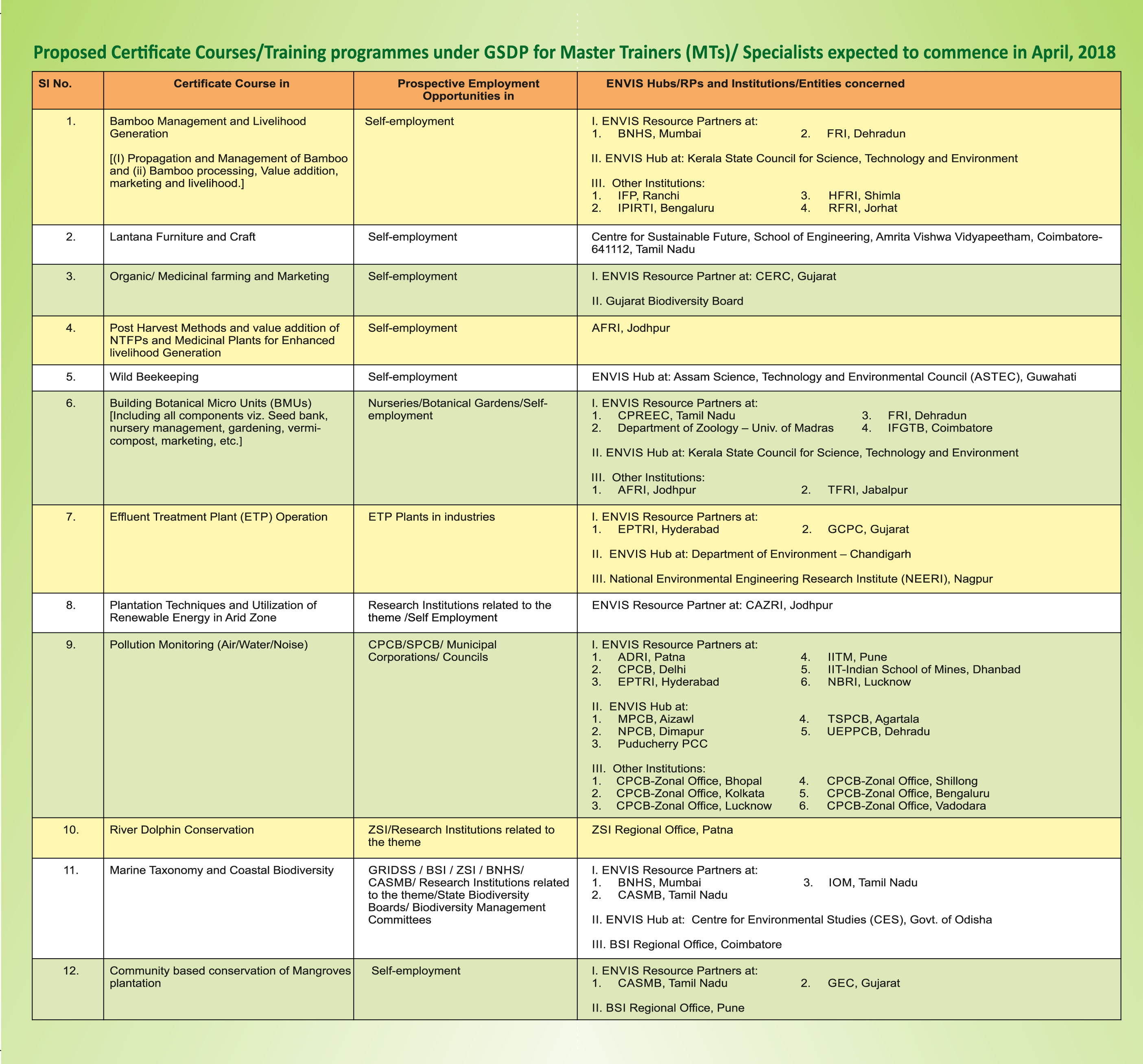
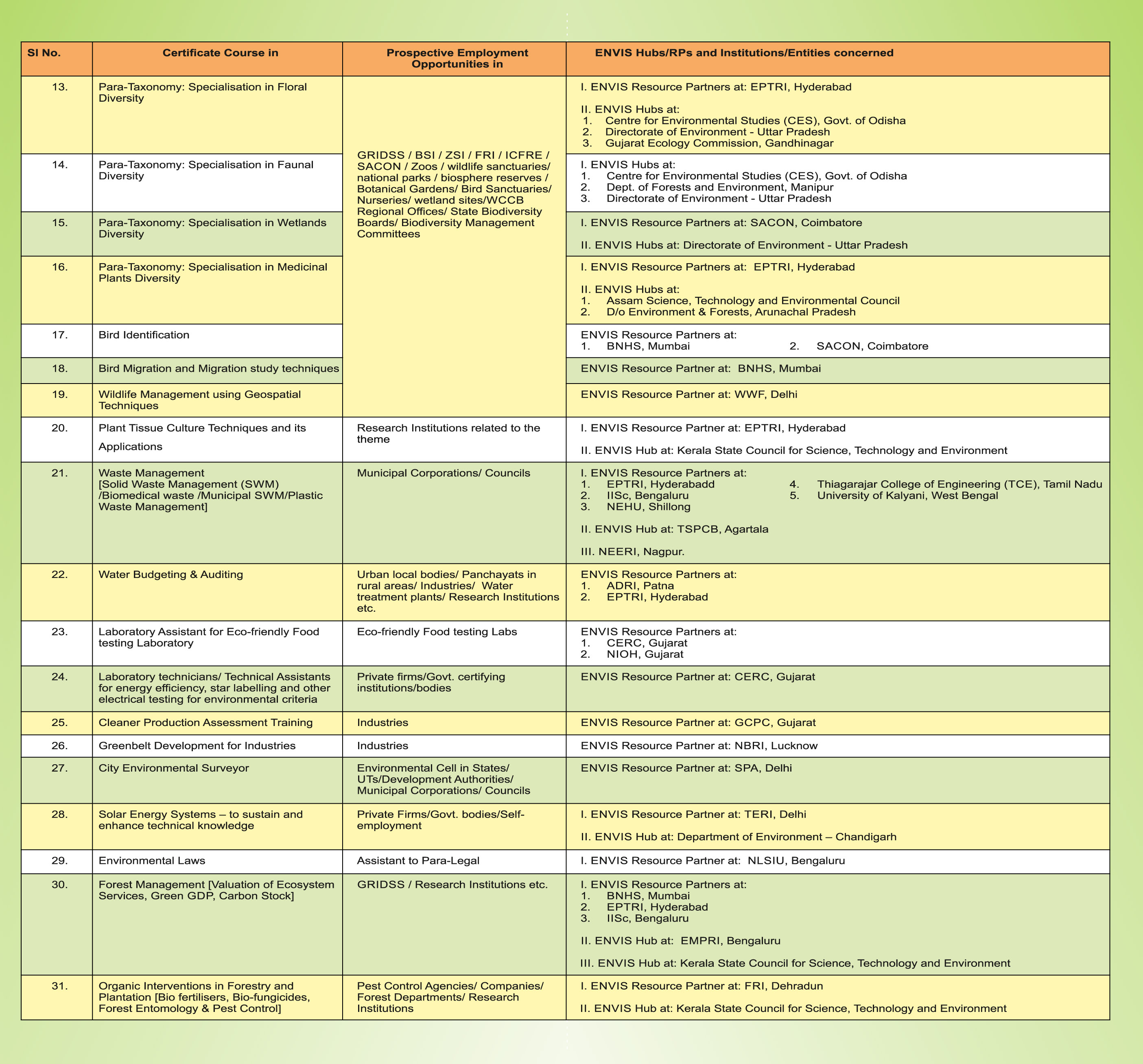
To Download the e-Brochure of GSDP-ENVIS Course: Click Here
To Download the GSDP-ENVIS advertisement Click Here: [English] | [Hindi]